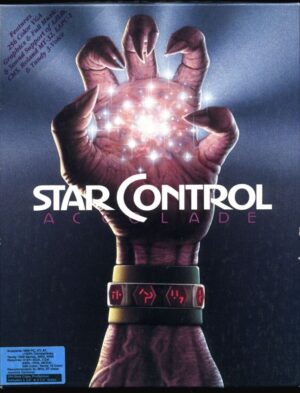Retro Replay Review
Gameplay
Jet Set Willy II: The Final Frontier maintains the same tight, precision‐based platforming that made its predecessor a classic. Players guide the ever‐eccentric Willy through a sprawling estate now expanded to 104 rooms, thanks to the addition of 40 fresh areas. Each room presents unique obstacles and enemy patterns, demanding both timing and memorization to navigate safely.
(HEY YOU!! We hope you enjoy! We try not to run ads. So basically, this is a very expensive hobby running this site. Please consider joining us for updates, forums, and more. Network w/ us to make some cash or friends while retro gaming, and you can win some free retro games for posting. Okay, carry on 👍)
The sequel refines some of the more frustrating elements of the original. Upon losing a life, Willy no longer restarts at the room’s entrance but at a designated safe spot. This subtle change reduces “unavoidable infinite death” loops, letting players retry difficult jumps without undue repetition. Additionally, the jump physics have been tweaked: acceleration feels a touch more responsive, and the height and distance of jumps feel marginally more forgiving.
Despite these small improvements, the core mechanics remain familiar. Willy can still only carry a single item at a time, so you’ll spend much of the game shuttling keys, treasures, and tools across adjacent rooms. This item management adds a light puzzle dimension on top of the platforming, rewarding careful planning and route optimization.
One perennial challenge carries over in the form of the game’s copy‐protection system. Before starting, you must consult a physical color reference sheet and input a four‐color code. While this harkens back to the ’80s era of gaming, it can interrupt the flow and may frustrate players who have misplaced their sheet or prefer digital copies. All told, though, the gameplay loop is as engaging and addictive as ever for fans of the genre.
Graphics
Graphically, Jet Set Willy II sticks to an 8-bit aesthetic characteristic of the ZX Spectrum era. The color palette remains bright and blocky, with heavy use of bold primaries and stark black backgrounds. Though simplistic by modern standards, the crisp outlines and instantly recognizable enemy sprites preserve a charming retro appeal.
The new rooms differ in thematic design, ranging from neon‐lit caverns to mechanical factories. Each environment introduces fresh visual motifs—rotating gears, sliding platforms, and swinging traps—helping the expanded world avoid feeling like a mere palette swap. The designers cleverly reuse a handful of sprites, but their inventive placement and color inversions give each area unique flavor.
Animation frames are minimal but effective. Willy’s walk and jump cycles use only three frames each, yet they convey a surprisingly fluid sense of motion. Enemies feature simple back‐and‐forth patterns, but their timing and placement make them feel like legitimate hazards. Loading screens and title art offer hand-drawn illustrations that, when viewed today, evoke a strong sense of nostalgia.
It’s worth noting that hardware limitations lead to occasional attribute clash—areas where sprite colors bleed into the background. Purists may see this as part of the retro charm; modern players unused to color limitations might find it distracting. Overall, the graphics may not dazzle, but they faithfully capture the spirit of early ’80s home computing.
Story
Storytelling in Jet Set Willy II is minimal by design, leaning into surreal humor rather than narrative depth. The premise picks up where the first game left off: Willy’s infamous mansion has more hidden chambers, bizarre traps, and mischievous denizens. Your goal remains the same—collect all the scattered treasures so the newly wed Willy can finally get some rest.
Though there’s no dialogue or cutscenes, the varied room names and background details imply a whimsical backstory. Titles like “Alien Carousel” or “Quantum Burrow” hint at otherworldly influences and tongue-in-cheek nods to contemporary sci-fi. Fans often imagine elaborate tales about how an aristocratic recluse like Willy amassed such peculiar contraptions in his own home.
The sequel teases additional lore via its loading prompts and copy-protection screen. The four-color code requirement is framed as Willy’s own security gates to keep intruders out. This playful framing reinforces the notion that you’re exploring a mischievous character’s personal playground rather than a high-consequence dungeon.
In an era when few games bothered with plot, Jet Set Willy II weaves enough thematic threads to spark the imagination. It doesn’t tell a deep story, but it offers a quirky premise that complements the gameplay, keeping each discovery fresh and surprising.
Overall Experience
Playing Jet Set Willy II: The Final Frontier feels like uncovering a lost piece of gaming history. The expanded room count and small quality-of-life tweaks enhance the original formula, making it both more approachable and more challenging in the right ways. If you’ve ever yearned for a modern reissue with updated controls, you might be left wanting, but for retro enthusiasts, this sequel is a welcome extension.
The balance of platforming precision and light puzzle solving remains engaging, encouraging repeated runs to perfect your routes. The copy-protection step can be a minor hurdle—particularly for collectors who lack the original code sheet—but it also serves as an authentic throwback to the days of software tangibility.
While the lacking narrative depth and rudimentary graphics may deter players seeking a story-driven, visually rich experience, those appreciating tight mechanics and vintage charm will find plenty to love. The game’s difficulty curve is steep but fair, thanks largely to the refined respawn spots and adjusted jump physics.
In sum, Jet Set Willy II: The Final Frontier delivers a satisfying dose of retro platforming in a package that both honors and expands upon its predecessor. Whether you’re reliving childhood memories or diving into 8-bit platformers for the first time, this sequel is a worthwhile adventure across Willy’s wonderfully bizarre estate.
 Retro Replay Retro Replay gaming reviews, news, emulation, geek stuff and more!
Retro Replay Retro Replay gaming reviews, news, emulation, geek stuff and more!









Reviews
There are no reviews yet.